El Paso residents feeling unsafe as schools plan to shelter migrants
El Paso residents Rosie and Yvette react to the migrant surge in El Paso, call on President Biden to do more to address the border crisis
Ever since he began volunteering two months ago for weekend shifts at a clinic in one of the largest shelters in the border city of Ciudad Juarez, Mexico, Dr. Brian Elmore has treated about 100 migrants for respiratory viruses and a handful of more serious emergencies, the Associated Press reported.
But what worries him most is something else.
Many migrants are traumatized after their long journeys north.
TEXAS RANCHERS PLEAD FOR HELP FROM GOV. ABBOTT AFTER THIRD ATTEMPTED BREAK-IN AMID MIGRANT CRISIS
The "worsening trauma" experienced by the migrants, the AP reported, often involves witnessing murders and suffering from kidnappings and sexual assault.
"Most of our patients have symptoms of PTSD — I want to initiate a screening for every patient," Elmore, an emergency medicine doctor at Clinica Hope, told the AP.
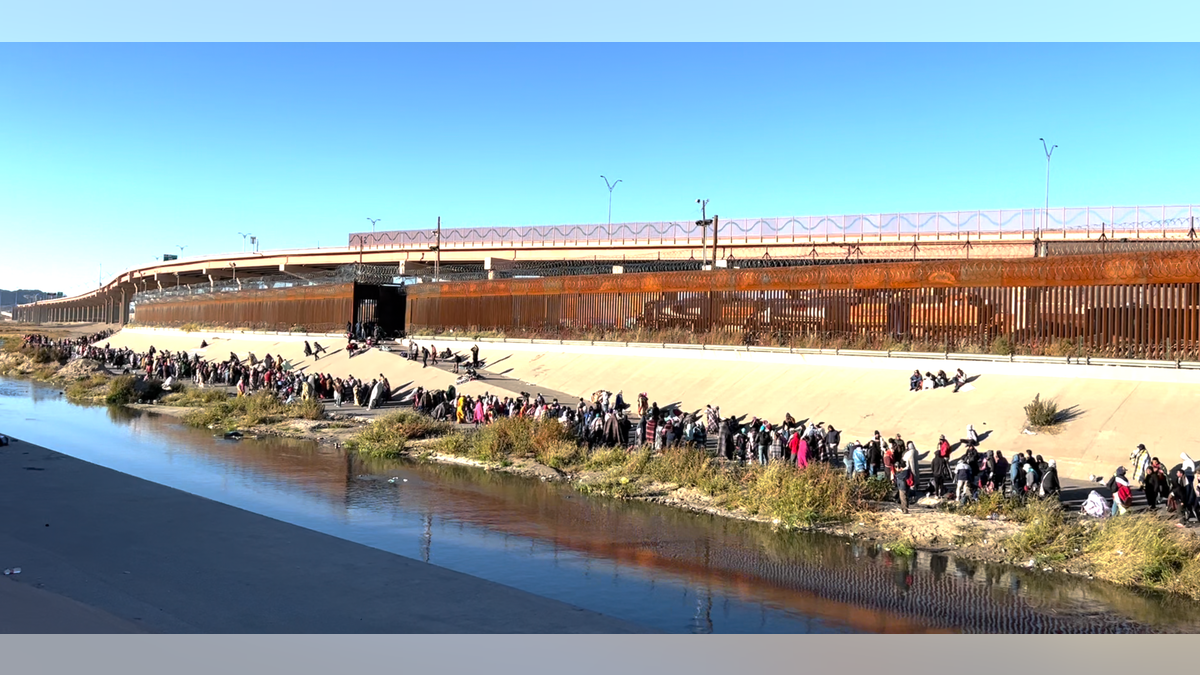
The city of El Paso, Texas, has never seen this amount of migrant crossings, according to the El Paso deputy city manager. Professionals including doctors, social workers, clergy and law enforcement say growing numbers of migrants are suffering violence that amounts to torture, the AP reported. (Fox News Digital / Jon Michael Raasch)
The Catholic nonprofit Hope Border Institute opened the clinic this past fall with the help of Bishop Mark Seitz of El Paso, Texas, which borders Juarez, said the AP.
"The Hope Border Institute (HOPE) brings the perspective of Catholic social teaching to bear on the realities unique to our U.S.-Mexico border region," the group's website says.
"Through a robust program of research and policy work, leadership development and action, we work to build justice and deepen solidarity across the borderlands."
The network of shelters is so overwhelmed by new arrivals and migrants that only the most severe cases can be handled, the AP reported.
Professionals including doctors, social workers, clergy and law enforcement say growing numbers of migrants are suffering violence that amounts to torture — and are arriving at the U.S.-Mexican border in desperate need of trauma-informed medical and mental health treatment, the AP reported.
AIR FORCE VETERAN AND HIS WIFE FACED PTSD HEAD-ON WITH THE HELP OF ALL SECURE FOUNDATION
But resources for this specialized care are scarce.
And the network of shelters is so overwhelmed by new arrivals and migrants that only the most severe cases can be handled, according to the AP's reporting.
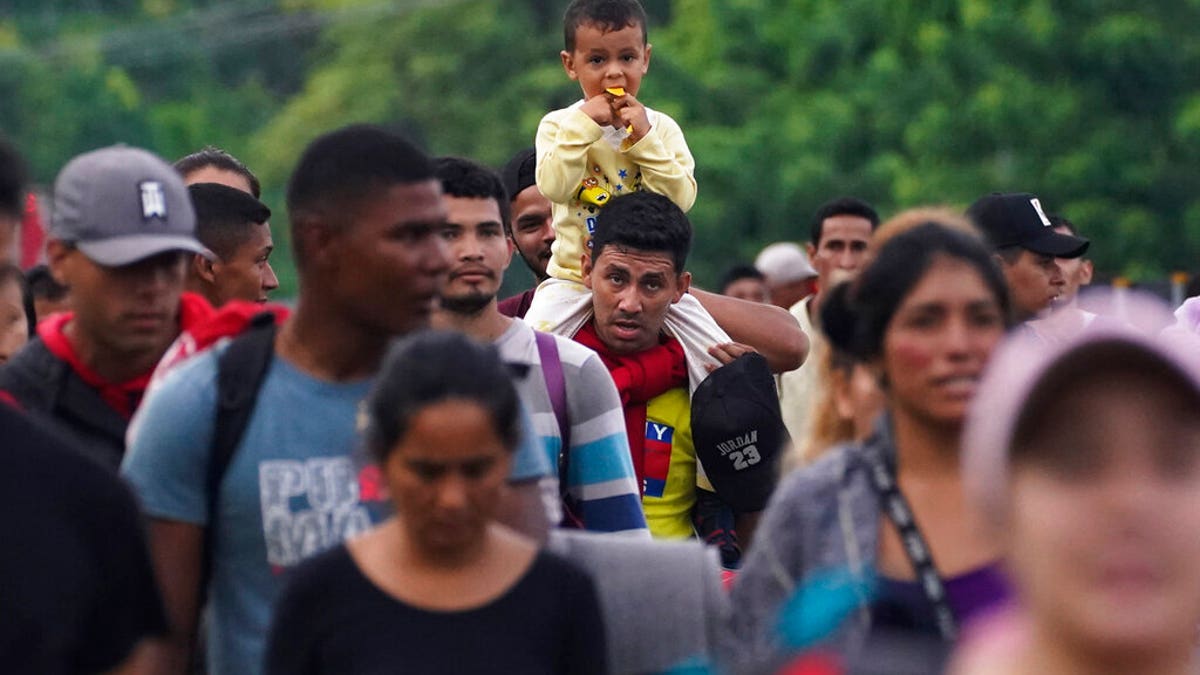
Migrants, many from Central American and Venezuela, walk along the Huehuetan highway in Chiapas state, Mexico, on June 7, 2022. "We get people at their most vulnerable," one case manager said about what health professionals and others are seeing right now. (AP Photo/Marco Ugarte)
One specific example, as a case manager described: "A pregnant 13-year-old … fled gang rapes, and so [she] needs help with child care and middle school."
DR. MARC SIEGEL: MENTAL HEALTH CRISIS IS ‘MUCH WORSE’ DUE TO THE PANDEMIC
Zury Reyes Borrero, a case manager in Arizona with the Center for Victims of Torture, visited the young girl when she gave birth — and described the circumstances.
"We get people at their most vulnerable. Some don’t even realize they’re in the U.S.," the case manager told the AP.
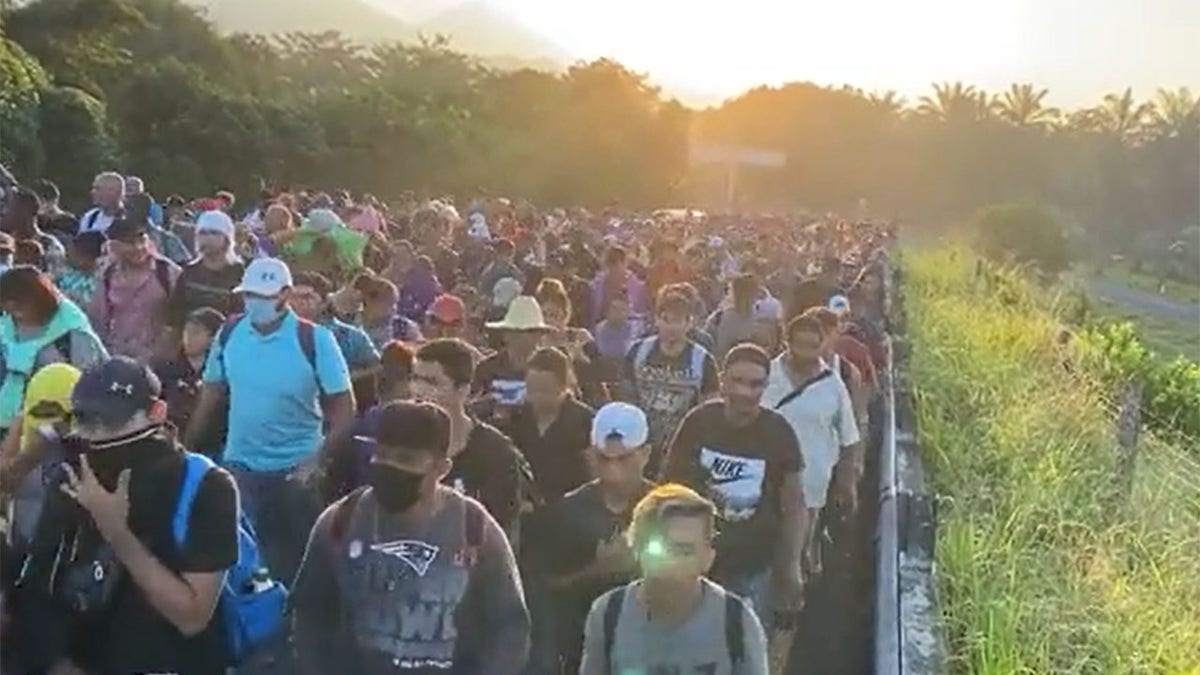
Scores of migrants are shown making their way to the U.S. border in October 2021. The "worsening trauma" experienced by migrants today often involves witnessing murders and suffering from kidnappings and sexual assault, the Associated Press reported. (Fox News)
In the past six months, Reyes Borrero and a colleague have helped about 100 migrants at Catholic Community Services’ Casa Alitas, a shelter in Tucson, Arizona, she said.
Each visit with a migrant can take hours.
Caseworkers try to build a rapport with the individuals — and focus on empowering them, Reyes Borrero told the AP.
This group of people "might not have any memory that’s safe."
This group of people "might not have any memory that’s safe," said Sarah Howell, who runs a clinical practice and a nonprofit treating migrant survivors of torture in Houston, Texas.
When she visits patients in their new Texas communities, said Howell, they routinely introduce relatives or neighbors who also need help with severe trauma; yet they reportedly lack the stability and safety necessary for healing.
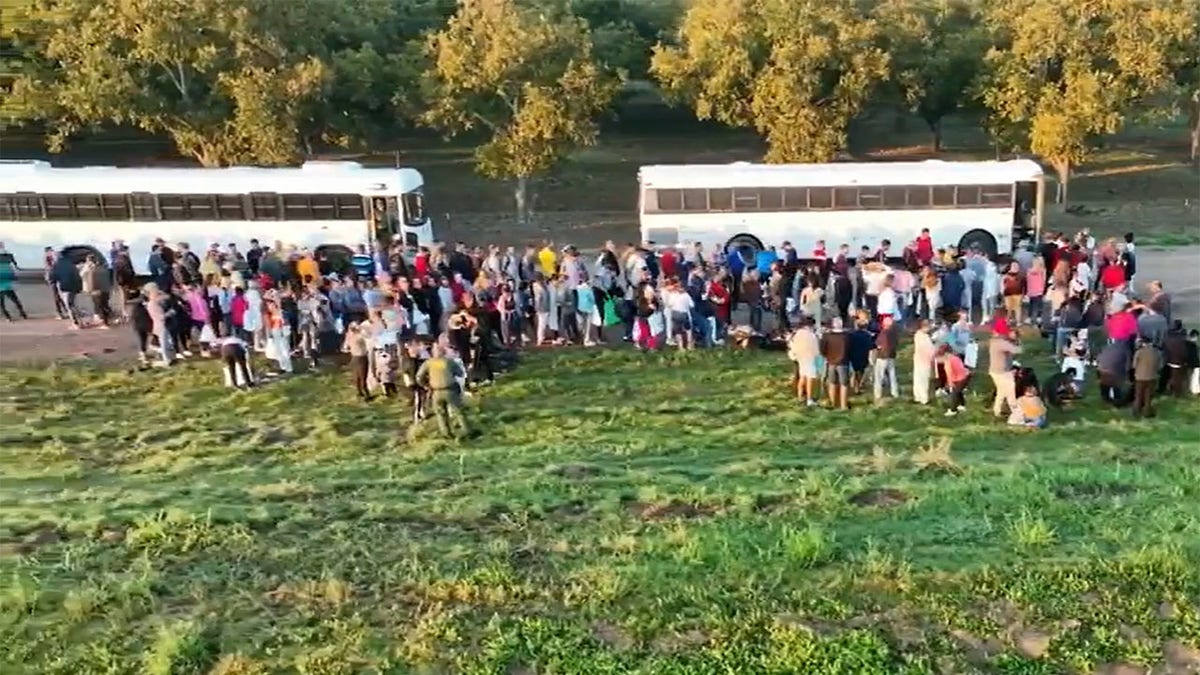
A group of illegal migrants are shown gathered at the U.S. southern border. (Fox News)
Most migrants need "first-aid mental health" as well as long-term care that’s even harder to arrange once they disperse from border-area shelters to communities across the country, noted another professional.
Left untreated, such trauma can escalate to where it necessitates psychiatric care instead of therapy and self-help, Dylan Corbett, Hope Border Institute’s executive director, told the AP.
Natural perils like deadly snakes and rivers only add to the risks.
Service providers and migrants alike are saying the most dangerous spot on journeys filled with peril at every step is "la selva" — the Darien Gap jungle separating Colombia from Panama, crossed by increasing numbers of Venezuelans, Cubans and Haitians who first moved to South America and are now seeking safer lives in the United States, the AP reported.
CLICK HERE TO SIGN UP FOR OUR HEALTH NEWSLETTER
Natural perils like deadly snakes and rivers only add to the risks of an area rife with bandits preying on migrants, the same source noted.
'Root cause' of the crisis
Meanwhile, over four million migrants have flocked to the southern border since Vice President Kamala Harris was assigned the task of addressing the "root cause" of the crisis nearly two years ago, Fox News Digital reported this weekend.
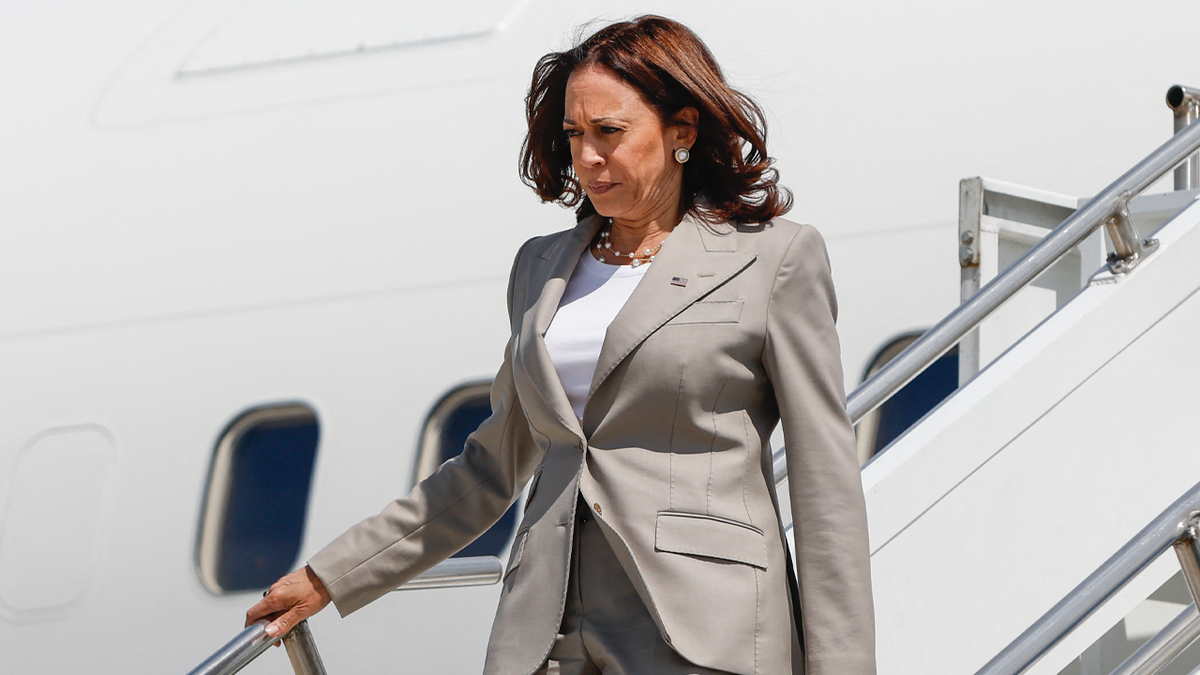
Vice President Kamala Harris steps off Air Force Two after arriving at Aurora Municipal Airport in Aurora, Illinois, on June 24, 2022. (Getty Images)
U.S. Customs and Border Protection tracked 233,000 border encounters in November.
That's a 35% increase from when Harris was assigned her role on mass migration there in March 2021.
These encounters are expected to increase after the expiration of Title 42, a pandemic-era policy under President Donald Trump that allows border agents to turn away migrants at the border.
The White House in December could not define exactly what Harris does in her role to address the mass migration.
"I don’t have anything to lay out specifically on what that work looks like," press secretary Karine Jean-Pierre said at a press briefing when asked about the role of the vice president.
CLICK HERE TO GET THE FOX NEWS APP
The vice president’s office did not respond to a request for comment.
The Associated Press, as well as Fox News Digital's Patrick Hauf, contributed reporting.

